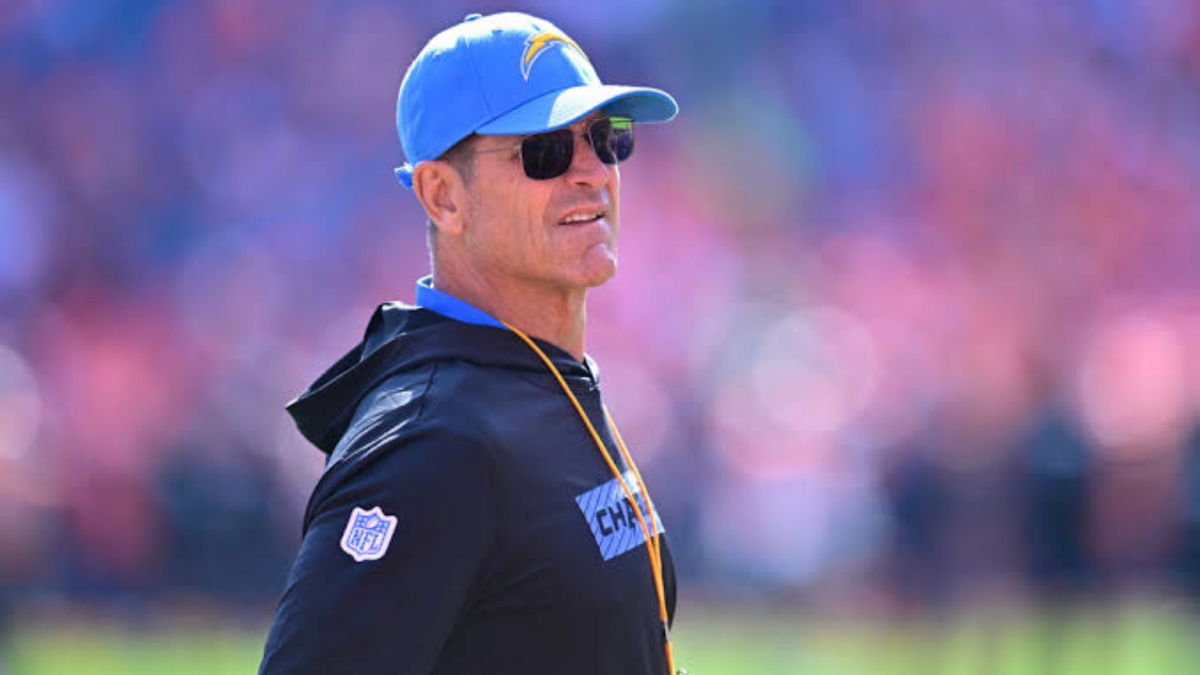
Imago
Jim Harbaugh, source, IG

Imago
Jim Harbaugh, source, IG
For most of his career, Jim Harbaugh has been in the sights of college football. Some saw him as the hot-headed tactician who could extract every bit of effort out of his teams. While others viewed him as a genius held back by his stubbornness. Even when Michigan claimed its first national championship trophy in 1997, Harbaugh bore the stigma of the coach who could not win the big game. A coach who could not beat Ohio State, and perhaps did not deserve to return to Ann Arbor at all. This narrative hit rock bottom in 2020. Michigan staggered to a 2–4 mark in the pandemic-shortened season, and the school’s prodigal son quickly felt like more of a liability than a hero.
Watch What’s Trending Now!
The program cut his salary in half. A move meant more for accountability than punishment, but the message was clear: if Harbaugh wanted to stay in maize and blue, he had to prove himself. As per Athletic‘s Ian O’Connor, “Michigan showed him with that cut in salary, he was not hired to be a role model for young men at the facility. He was hired to do everything in his power to make the Wolverines the finest team in America, and if that meant treating NCAA compliance and its advocates with utter disdain, then so be it.”
Rumors circulated in backrooms that he was looking for a way back into the NFL, and the cut hurt more than he would ever publicly admit. For once, Harbaugh seemed to leave Michigan a defeated man. Instead, he stayed.
ADVERTISEMENT
After that low point in 2020, Jim Harbaugh gradually turned things around over the next three years. Michigan beat Ohio State three straight times. The very critics who once called him overrated were now tipping their caps. Harbaugh did exactly what so many said he couldn’t: he brought Michigan to the top. However, another storm was waiting for him.
That storm came as the NCAA probes that cast a shadow over Harbaugh’s triumph, raising questions like, did he cross the line to win? Michigan was singled out in late 2023 for impermissible player and recruit contact throughout the COVID-19 pandemic. They labeled it as “unethical conduct” and a breakdown in “maintaining an environment of compliance” by the NCAA. Harbaugh has defended that he did nothing improper, asserting he did everything within the rules as he understood them.
Later in the fall, the Wolverines were charged with illegal in-person recruiting of future adversaries, a conspiracy that included Connor Stalions. As the NCAA completed its investigation, the specifics of Harbaugh’s involvement were disputed, and questions of intent and oversight remained unaddressed.
ADVERTISEMENT
Even as these charges hung over the program, it is important to value Harbaugh’s on-field achievements. He won Big Ten titles in all of his final three years. But the allegations add a complicating factor to his record, sparking questions about whether they won entirely within the rules. Fans and observers alike are left to weigh victory against controversy, even as Harbaugh’s denials continue.
With Harbaugh’s return to the NFL, Michigan has the added burden of balancing its new fame with the compliance and oversight scandal. His tenure here now is a story of triumph and uncertainty. A coach who brought his program national, yet departed without knowing if the boundaries were crossed in the process.
ADVERTISEMENT
Amid Harbaugh’s denial, the Wolverines face $35 million in fines
The mascot face of Michigan’s 2023 national championship still hasn’t fully faded, yet the program now finds itself squarely in the NCAA’s crosshairs. Following its investigation into compliance violations, the governing body announced sweeping sanctions on August 15 tied to the sign-stealing scandal that shadowed the Wolverines for nearly two years. The penalties carry an estimated cost of $35 million as a result of a sign-stealing scandal. This fine includes a $50,000 base penalty, a 10% fine of the football program’s budget, a 10% fine on scholarships, and a sum equivalent to the lost postseason revenue.
Although the NCAA concluded that there was ‘overwhelming evidence‘ of a scouting scheme from 2021 through 2023, it stopped short of imposing a two-year postseason ban, citing fairness to current players. The committee argued that such a punishment would unfairly hold today’s roster accountable for the misdeeds of former staff.
ADVERTISEMENT

USA Today via Reuters
May 29, 2024. Costa Mesa, CA, USA; Los Angeles Chargers coach Jim Harbaugh during organized team activities at Hoag Performance Center. Mandatory Credit: Kirby Lee-USA TODAY Sports
Head coach Sherrone Moore, who already received a two-game suspension from the school, will spend a third game under NCAA mandate, including the 2026 opener. They also issued Moore a two-year show-cause order, though he may continue to coach. Former player Connor Stalions, the fulcrum of the scandal, received an eight-year show-cause. It sidelines him from college sports. Additionally, the NCAA directed Jim Harbaugh to a 10-year show-cause order after the existing one runs out in 2028.
Top Stories
Michael Strahan Confirms Stance on Retirement from FOX While Announcing Future Plans

NFL Announces ACL Injury News Despite Patrick Mahomes & Micah Parsons’ Struggle

NFL Legend Charles Tillman Opens Up on Resigning From FBI After Unethical ICE Raids

Dak Prescott Officially at Risk of Losing 15 Players After Jerry Jones Fires Three Cowboys Coaches

Benched for Sam Darnold After 3 Games, Ex-USC QB Spills Seahawks Star’s Message to Him

The NCAA cited attempts to obstruct its investigation, pointing to trashed equipment, withheld documents, and duplicitous testimony. In a theatrical gesture, the former Stalions’ coach reportedly smashed his phone “into a thousand pieces” and tossed it into a pond. For Michigan, the sanctions are a huge blow, though Athletic Director Warde Manuel vowed to appeal, calling parts of the decision “fundamentally flawed.” But the damage is done. The Wolverines’ return to glory will forever be marked with scandal.
ADVERTISEMENT
ADVERTISEMENT
ADVERTISEMENT
ADVERTISEMENT
.png)
.png)
.png)



